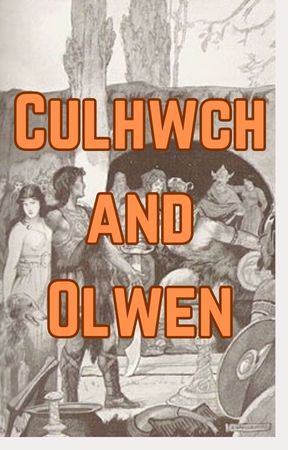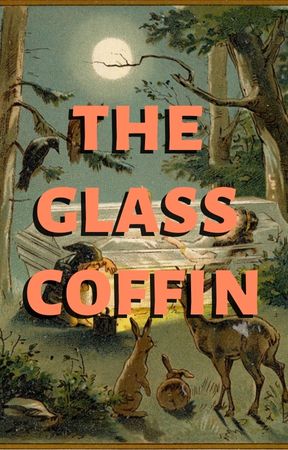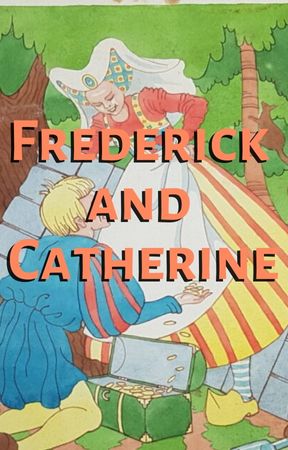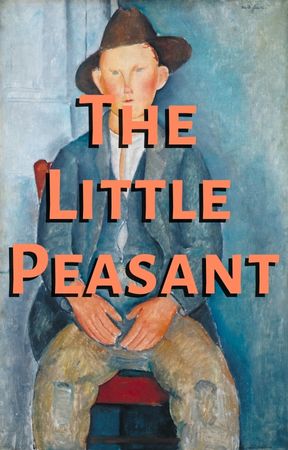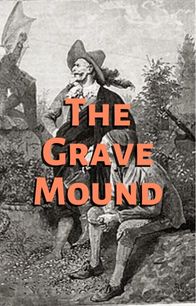A rich farmer was one day standing in his yard inspecting his fields and gardens. The corn was growing up vigorously and the fruit-trees were heavily laden with fruit.
The grain of the year before still lay in such immense heaps on the floors that the rafters could hardly bear it.
Then he went into the stable, where were well-fed oxen, fat cows, and horses bright as looking-glass.
At length he went back into his sitting-room, and cast a glance at the iron chest in which his money lay.
Whilst he was thus standing surveying his riches, all at once there was a loud knock close by him.
The knock was not at the door of his room, but at the door of his heart.
It opened, and he heard a voice which said to him, “Hast thou done good to thy family with it? Hast thou considered the necessities of the poor? Hast thou shared thy bread with the hungry? Hast thou been contented with what thou hast, or didst thou always desire to have more?” The heart was not slow in answering, “I have been hard and pitiless, and have never shown any kindness to my own family.
If a beggar came, I turned away my eyes from him.
I have not troubled myself about God, but have thought only of increasing my wealth.
If everything which the sky covers had been mine own, I should still not have had enough.”
When he was aware of this answer he was greatly alarmed, his knees began to tremble, and he was forced to sit down.
Then there was another knock, but the knock was at the door of his room.
It was his neighbour, a poor man who had a number of children whom he could no longer satisfy with food.
“I know,” thought the poor man, “that my neighbour is rich, but he is as hard as he is rich.
I don’t believe he will help me, but my children are crying for bread, so I will venture it.”
He said to the rich man, “You do not readily give away anything that is yours, but I stand here like one who feels the water rising above his head.
My children are starving, lend me four measures* of corn.”
The rich man looked at him long, and then the first sunbeam of mercy began to melt away a drop of the ice of greediness.
“I will not lend thee four measures,” he answered, “but I will make thee a present of eight, but thou must fulfill one condition.”
“What am I to do?” said the poor man.
“When I am dead, thou shalt watch for three nights by my grave.”
The peasant was disturbed in his mind at this request, but in the need in which he was, he would have consented to anything; he accepted, therefore, and carried the corn home with him.
It seemed as if the rich man had foreseen what was about to happen, for when three days were gone by, he suddenly dropped down dead.
No one knew exactly how it came to pass, but no one grieved for him.
When he was buried, the poor man remembered his promise; he would willingly have been released from it, but he thought, “After all, he acted kindly by me.
I have fed my hungry children with his corn, and even if that were not the case, where I have once given my promise I must keep it.”
At nightfall he went into the churchyard, and seated himself on the grave-mound.
Everything was quiet, only the moon appeared above the grave, and frequently an owl flew past and uttered her melancholy cry.
When the sun rose, the poor man betook himself in safety to his home, and in the same manner the second night passed quietly by.
On the evening of the third day he felt a strange uneasiness, it seemed to him that something was about to happen.
When he went out he saw, by the churchyard-wall, a man whom he had never seen before.
He was no longer young, had scars on his face, and his eyes looked sharply and eagerly around.
He was entirely covered with an old cloak, and nothing was visible but his great riding-boots.
“What are you looking for here?” the peasant asked.
“Are you not afraid of the lonely churchyard?” “I am looking for nothing,” he answered, “and I am afraid of nothing! I am like the youngster who went forth to learn how to shiver, and had his labour for his pains, but got the King’s daughter to wife and great wealth with her, only I have remained poor.
I am nothing but a paid-off soldier, and I mean to pass the night here, because I have no other shelter.”
“If you are without fear,” said the peasant, “stay with me, and help me to watch that grave there.”
“To keep watch is a soldier’s business,” he replied, “whatever we fall in with here, whether it be good or bad, we will share it between us.”
The peasant agreed to this, and they seated themselves on the grave together.
All was quiet until midnight, when suddenly a shrill whistling was heard in the air, and the two watchers perceived the Evil One standing bodily before them.
“Be off, you ragamuffins!” cried he to them, “the man who lies in that grave belongs to me; I want to take him, and if you don’t go away I will wring your necks!” “Sir with the red feather,”* said the soldier, “you are not my captain, I have no need to obey you, and I have not yet learned how to fear.
Go away, we shall stay sitting here.”
The Devil thought to himself, “Money is the best thing with which to get hold of these two vagabonds.”
So he began to play a softer tune, and asked quite kindly, if they would not accept a bag of money, and go home with it? “That is worth listening to,” answered the soldier, “but one bag of gold won’t serve us, if you will give as much as will go into one of my boots, we will quit the field for you and go away.”
“I have not so much as that about me,” said the Devil, “but I will fetch it.
In the neighboring town lives a money-changer who is a good friend of mine, and will readily advance it to me.”
When the Devil had vanished the soldier took his left boot off, and said, “We will soon pull the charcoal-burner’s nose for him, just give me your knife, comrade.”
He cut the sole off the boot, and put it in the high grass near the grave on the edge of a hole that was half over-grown.
“That will do,” said he; “now the chimney-sweep may come.
They both sat down and waited, and it was not long before the Devil returned with a small bag of gold in his hand.
“Just pour it in,” said the soldier, raising up the boot a little, “but that won’t be enough.”
The Black One shook out all that was in the bag; the gold fell through, and the boot remained empty.
“Stupid Devil,” cried the soldier, “it won’t do! Didn’t I say so at once? Go back again, and bring more.”
The Devil shook his head, went, and in an hour’s time came with a much larger bag under his arm.
“Now pour it in,” cried the soldier, “but I doubt the boot won’t be full.”
The gold clinked as it fell, but the boot remained empty.
The Devil looked in himself with his burning eyes, and convinced himself of the truth.
“You have shamefully big calves to your legs!” cried he, and made a wry face.
“Did you think,” replied the soldier, “that I had a cloven foot like you? Since when have you been so stingy? See that you get more gold together, or our bargain will come to nothing!” The Wicked One went off again.
This time he stayed away longer, and when at length he appeared he was panting under the weight of a sack which lay on his shoulders.
He emptied it into the boot, which was just as far from being filled as before.
He became furious, and was just going to tear the boot out of the soldier’s hands, but at that moment the first ray of the rising sun broke forth from the sky, and the Evil Spirit fled away with loud shrieks.
The poor soul was saved.
The peasant wished to divide the gold, but the soldier said, “Give what falls to my lot to the poor, I will come with thee to thy cottage, and together we will live in rest and peace on what remains, as long as God is pleased to permit.”
